Abstract
FR 17027, a new orally absorbed cephalosporin ester, inhibited group A and B streptococci and Streptococcus pneumoniae at less than or equal to 0.1 micrograms/ml, which is similar to the inhibition concentration of amoxicillin and cefaclor, and was more active than cephalexin. It was less active (MIC, 25 micrograms/ml) against staphylococci than was cephalexin, and it did not inhibit Streptococcus faecalis or Listeria monocytogenes. FR 17027 inhibited beta-lactamase-producing isolates of Neisseria gonorrhoeae, Haemophilus influenzae, and Branhamella catarrhalis at less than 0.1 micrograms/ml and was more active than cefaclor or cephalexin against these bacteria. FR 17027 inhibited Escherichia coli, Klebsiella pneumoniae, Proteus mirabilis, Klebsiella oxytoca, Providencia stuartii, Providencia rettgeri, and Citrobacter diversus at less than or equal to 1 microgram/ml, including isolated resistant to amoxicillin, cephalexin, and cefaclor, but it was less active than ceftizoxime. Some strains of Enterobacter cloacae, Enterobacter agglomerans, Citrobacter freundii, and Enterobacter aerogenes were resistant (MIC, greater than 25 micrograms/ml). FR 17027 did not inhibit Pseudomonas aeruginosa, other Pseudomonas species, Acinetobacter species, or Bacteroides species. Activity was minimally affected by growth conditions. FR 17027 was not hydrolyzed by the common beta-lactamases present in many of the pathogens causing respiratory and urinary tract infections in outpatients.
Full text
PDF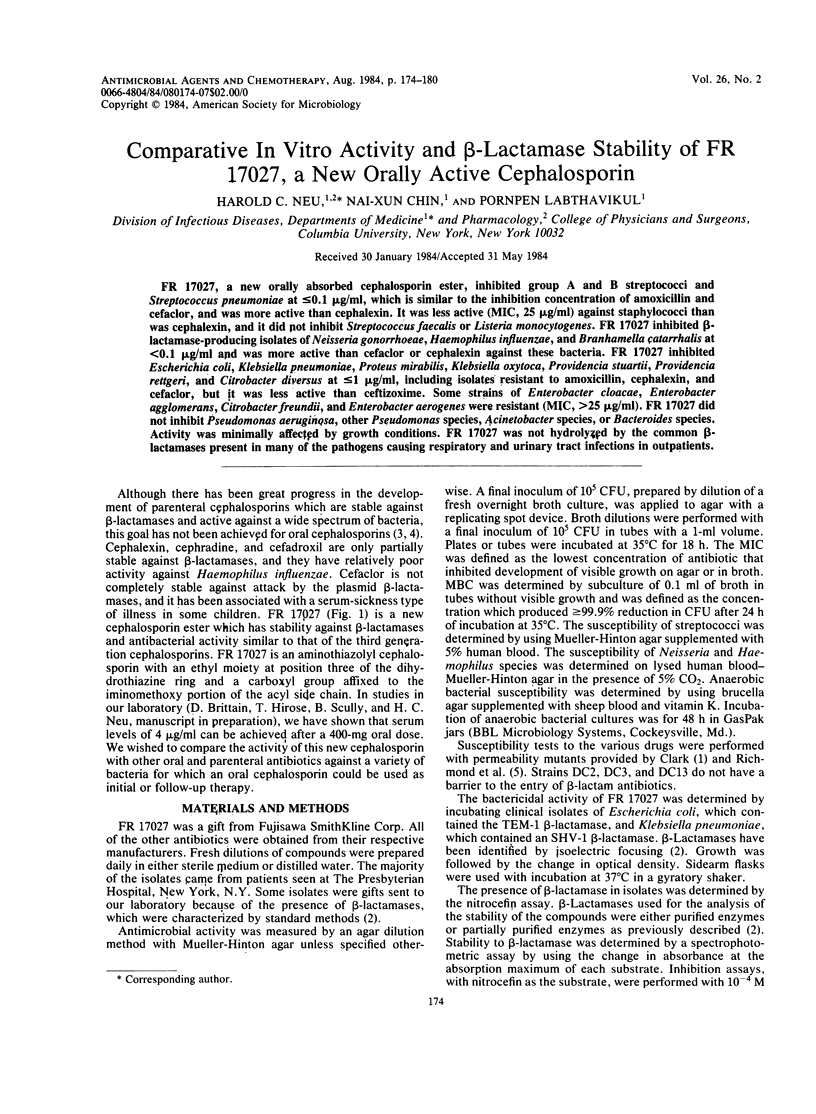
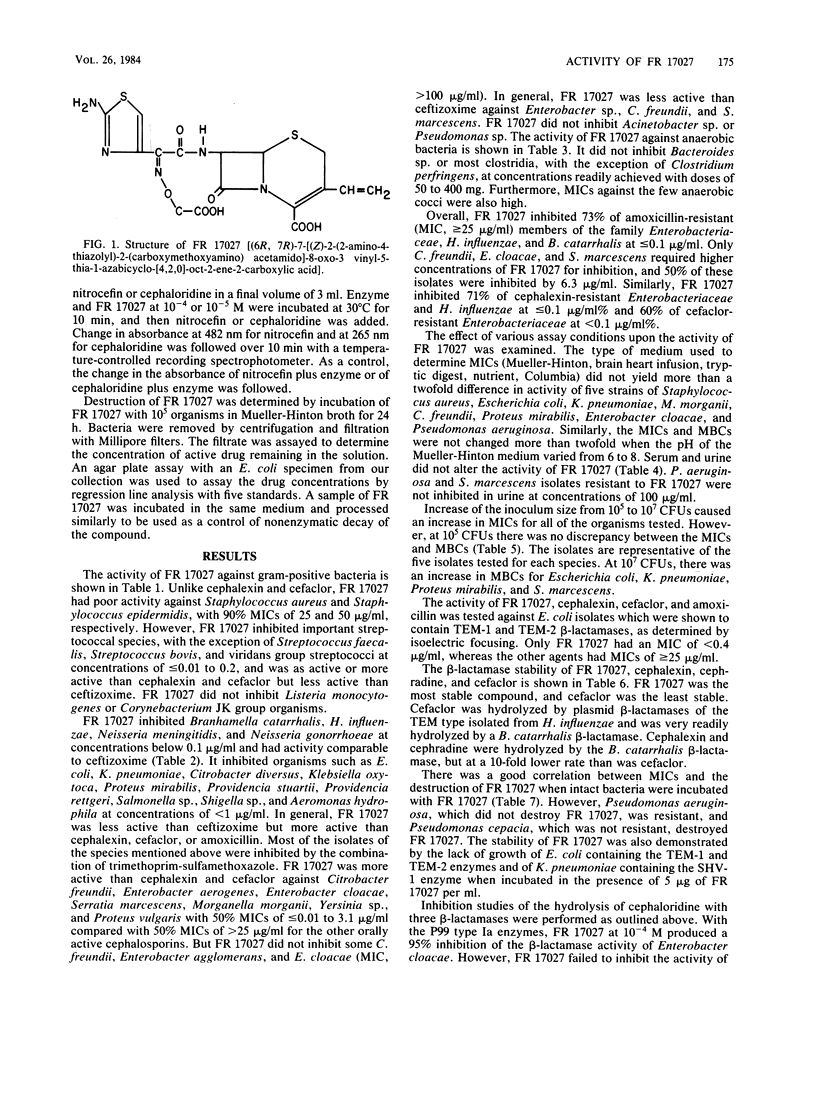
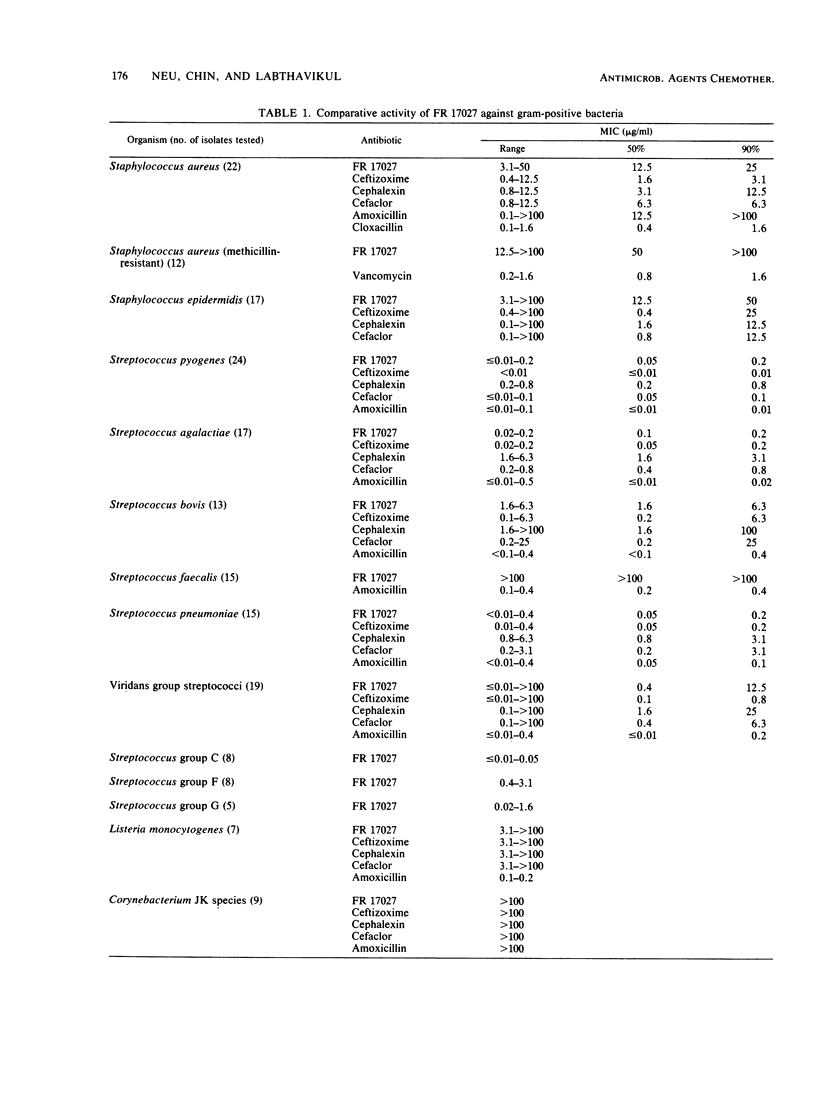
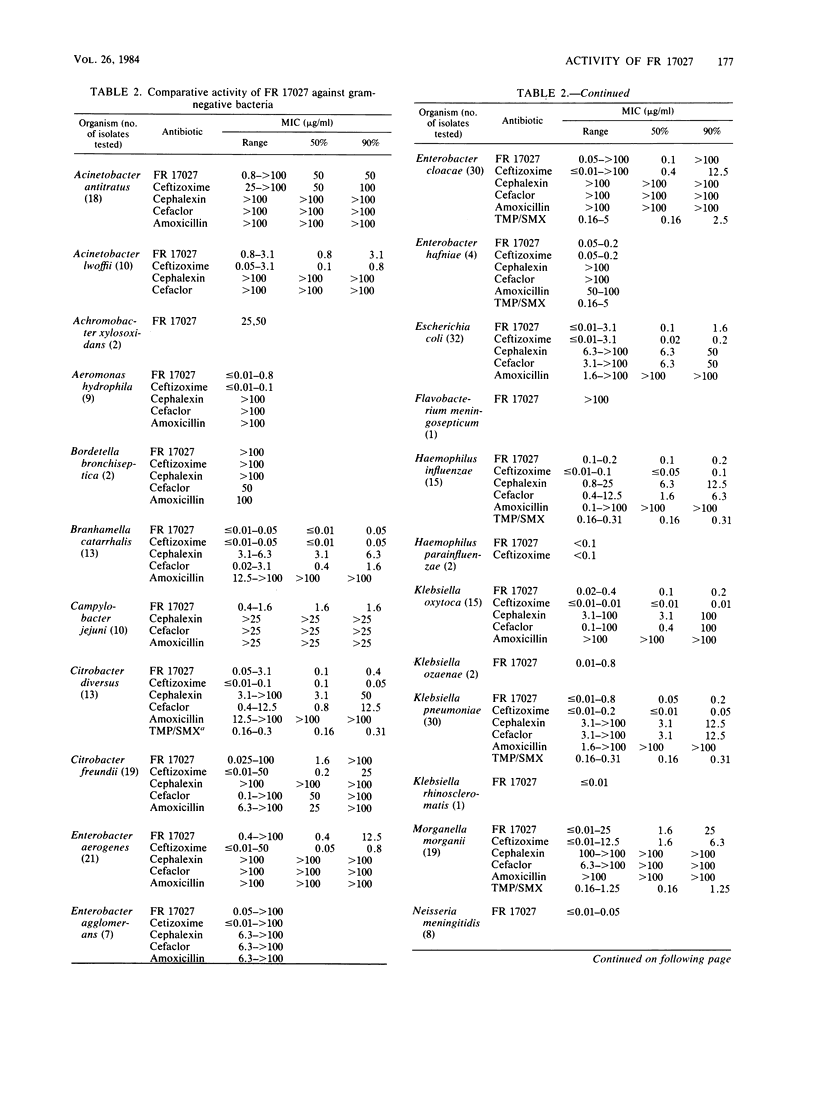
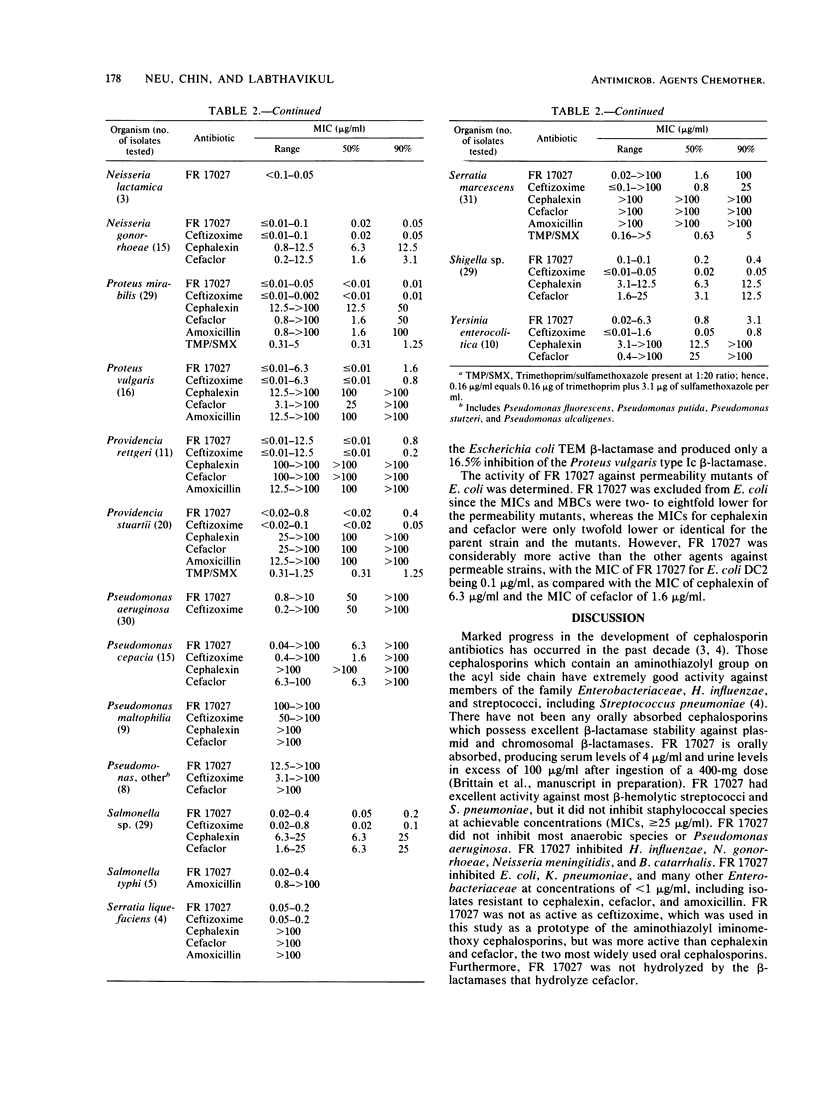
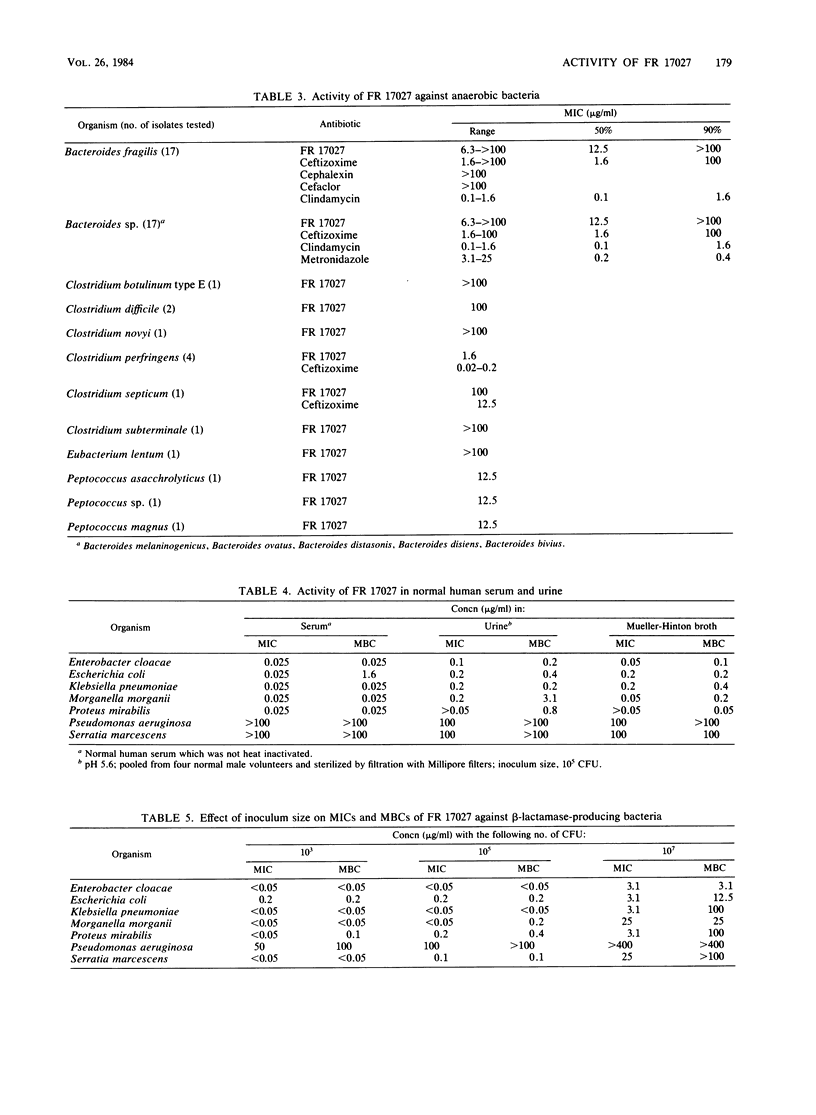
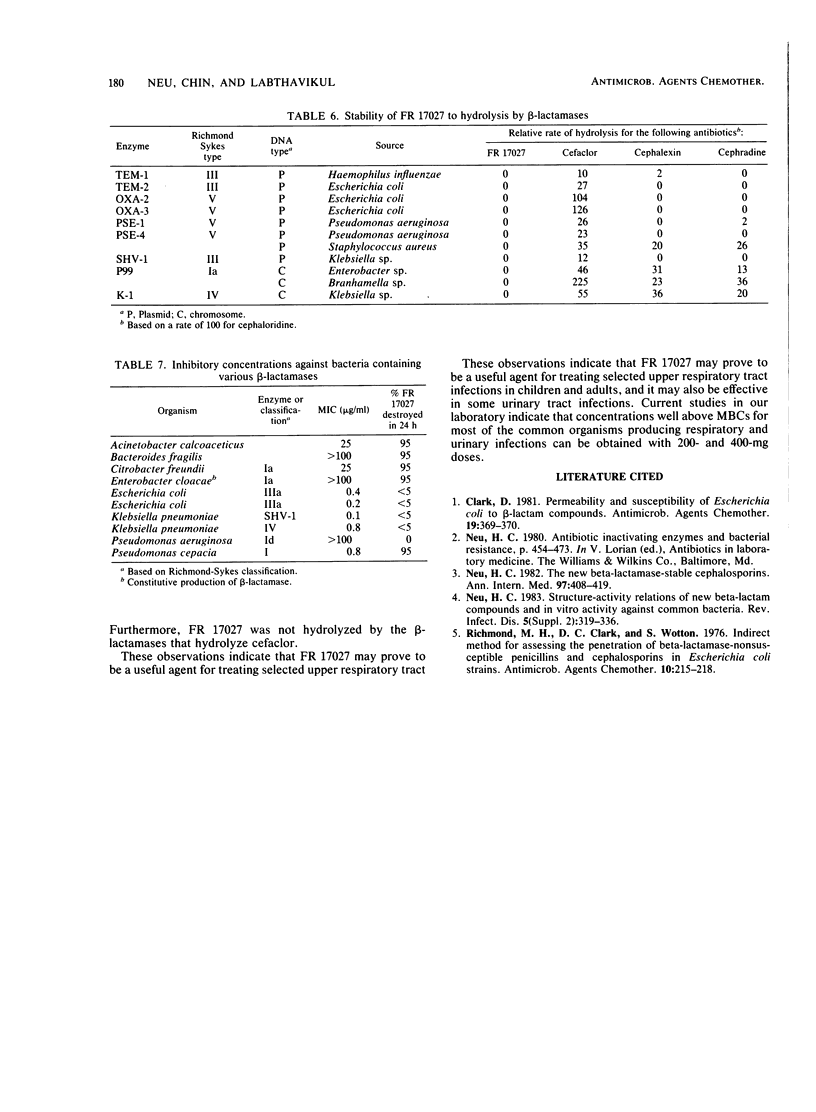
Selected References
These references are in PubMed. This may not be the complete list of references from this article.
- Clark D. Permeability and susceptibility of Escherichia coli to beta-lactam compounds. Antimicrob Agents Chemother. 1981 Feb;19(2):369–370. doi: 10.1128/aac.19.2.369. [DOI] [PMC free article] [PubMed] [Google Scholar]
- Neu H. C. The new beta-lactamase-stable cephalosporins. Ann Intern Med. 1982 Sep;97(3):408–419. doi: 10.7326/0003-4819-97-3-408. [DOI] [PubMed] [Google Scholar]
- Richmond M. H., Clark D. C., Wotton S. Indirect method for assessing the penetration of beta-lactamase-nonsusceptible penicillins and cephalosporins in Escherichia coli strains. Antimicrob Agents Chemother. 1976 Aug;10(2):215–218. doi: 10.1128/aac.10.2.215. [DOI] [PMC free article] [PubMed] [Google Scholar]


